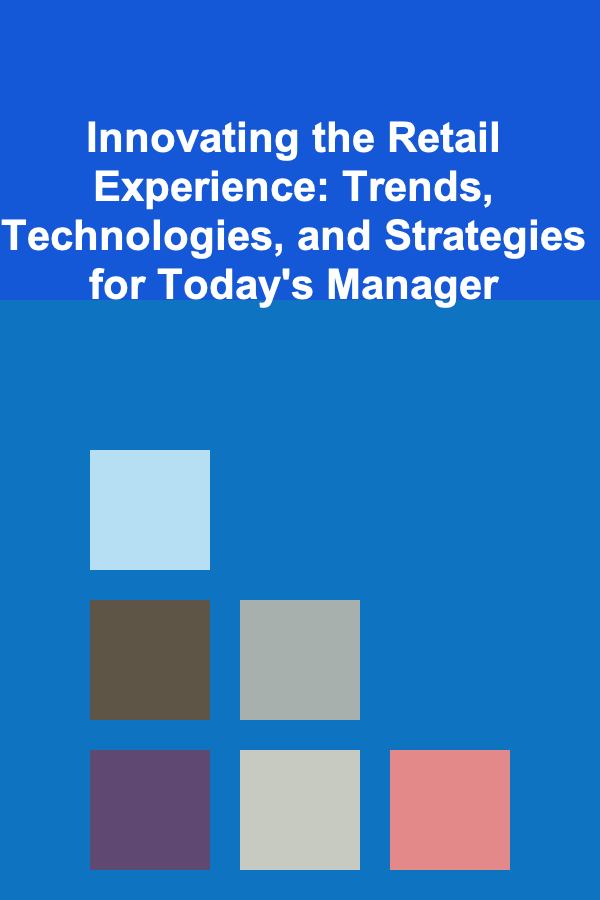
The Power of Informational Interviews: How to Conduct Them
ebook include PDF & Audio bundle (Micro Guide)
$12.99$7.99
Limited Time Offer! Order within the next:

In today's competitive job market, networking and building strong relationships with industry professionals is crucial for career advancement. One of the most underutilized yet highly effective methods to gain insights and make valuable connections is through informational interviews. While many people focus on job interviews to secure positions, informational interviews are a powerful tool for career exploration, guidance, and growth. They allow you to gather valuable information, expand your network, and potentially uncover job opportunities that might not be publicly advertised.
In this actionable guide, we'll dive deep into what informational interviews are, why they're important, how to conduct them successfully, and how to leverage them to boost your career.
What is an Informational Interview?
An informational interview is a casual conversation between you and someone in a role or industry you're interested in. Unlike job interviews, the purpose of an informational interview isn't to land a job, but rather to gather insights about a career path, company, or industry. It's an opportunity for you to learn from someone with experience, ask for advice, and potentially expand your professional network.
Why Informational Interviews Matter
Informational interviews provide a number of benefits that can significantly impact your career trajectory. Here are a few key reasons why they matter:
- Access to Insider Knowledge: Speaking to professionals in your desired field or industry provides you with first-hand insights that can't be found in job postings or general research. You learn about the company culture, the skills required, and the challenges professionals face in the field.
- Expand Your Network: Networking is one of the most effective ways to discover job opportunities, many of which are never posted publicly. Building relationships through informational interviews can introduce you to new contacts, references, or even mentors who can help you in your career journey.
- Increased Confidence: The more you engage in these conversations, the better you become at discussing your career interests and goals. This can help you prepare for future job interviews by giving you clarity on what you want in a role and the ability to articulate your motivations clearly.
- Explore Career Paths: Informational interviews allow you to explore different career paths without making an immediate commitment. You might discover that a role or industry you're considering isn't a good fit, or conversely, you might uncover new opportunities you hadn't previously thought about.
How to Prepare for an Informational Interview
While informational interviews are informal in nature, preparation is key to making the most out of the conversation. Here's how you can prepare for a successful informational interview:
1. Research the Person and Their Industry
Before reaching out to someone for an informational interview, make sure you research their background and understand the industry they work in. This allows you to ask thoughtful questions and show that you value their time and expertise. Here are some steps to take:
- LinkedIn Profile: Check the individual's LinkedIn profile to learn more about their career journey, education, and expertise. This will help you personalize your conversation.
- Company Research: Familiarize yourself with the company they work for, including its history, products/services, mission, and culture. This will help you ask more in-depth questions about the organization.
- Industry Trends: Stay updated on the latest trends and challenges in the industry they're part of. This will help you frame your questions in a relevant and timely manner.
2. Develop a List of Questions
While informational interviews are intended to be conversational, it's helpful to come prepared with a list of questions. Tailor your questions to the person's experience and the insights you're hoping to gain. Some key areas to consider are:
- Career Path and Experience: "Can you tell me about your career journey? What led you to this position?"
- Role-Specific Insights: "What does a typical day look like in your role? What are the main challenges you face?"
- Industry Trends: "What changes do you see happening in the industry over the next few years?"
- Skills and Education: "What skills do you think are most important for someone entering this field? Are there any certifications or training programs you'd recommend?"
- Work-Life Balance: "How do you manage work-life balance in your position? What advice do you have for someone starting out in this field?"
The key to asking good questions is focusing on gaining insights, rather than asking for a job directly. Remember, your goal is to learn, not to seek immediate employment.
3. Prepare Your Personal Story
While you won't be "interviewed" in the traditional sense, it's important to be ready to talk about your own background and career interests. Briefly share your professional story, highlighting your experiences, skills, and goals. This can also help the person you're interviewing better tailor their advice to your specific situation.
4. Set Clear Objectives
Think about what you hope to achieve from the interview. Whether it's gaining insight into a specific career path, learning about potential companies to work for, or getting advice on how to break into the industry, having clear goals will help keep the conversation focused and productive.
How to Conduct an Informational Interview
When it's time for the interview, you want to make the conversation engaging, respectful, and informative. Here are some tips for conducting a successful informational interview:
1. Set the Right Tone
Since informational interviews are more casual than traditional job interviews, aim to create a friendly, open atmosphere. Be courteous, polite, and professional, but don't be afraid to let your personality shine through. This will help build rapport and make the conversation more enjoyable for both of you.
2. Ask Open-Ended Questions
Instead of asking yes/no questions, frame your questions in a way that encourages detailed responses. Open-ended questions allow the person to elaborate on their experiences and provide more valuable insights. For example:
- "What was the most challenging part of transitioning into this role?"
- "How has the industry evolved over the years?"
- "Can you describe a typical project you work on?"
3. Listen Actively
Listening is just as important as asking the right questions. Pay close attention to the answers, and use follow-up questions to dig deeper into their responses. Show genuine curiosity and engage with their stories. Avoid interrupting and give them space to share their insights.
4. Be Mindful of Time
Respect the person's time by keeping the interview within the agreed-upon timeframe. If they've allotted 30 minutes, aim to finish in that time, but don't be afraid to ask for more time if they seem willing to extend the conversation.
5. Take Notes
During the conversation, take notes on key insights, advice, or recommendations. Not only will this help you retain the information, but it also shows the person you value their input. Just be sure not to take excessive notes that could make the conversation feel impersonal.
After the Interview: Follow Up and Leverage the Experience
Once the informational interview is over, it's crucial to follow up and make the most out of the experience.
1. Send a Thank-You Note
Within 24 hours of the interview, send a personalized thank-you note. Express gratitude for their time and for sharing their valuable insights. Let them know how you plan to apply the advice they gave you and how much you appreciated their input.
Sample thank-you note:
Dear [Name],
Thank you so much for taking the time to speak with me today. I greatly appreciated learning more about your career journey and the insights you shared about [specific industry/company]. Your advice on [specific advice or recommendation] was especially helpful as I continue to navigate my own career path.
I hope to stay in touch, and I'll be sure to keep you updated on my progress.
Best regards,
[Your Name]
2. Stay in Touch
Informational interviews are not just about gathering information; they are also about building long-term professional relationships. Stay in touch by periodically reaching out to share updates, ask additional questions, or simply check in. This keeps the connection alive and can turn into a mentorship or future job referral.
3. Leverage the Knowledge Gained
Put the insights you gained from the interview into action. Whether it's exploring a new career path, acquiring specific skills, or targeting certain companies, use the information to guide your next steps. Informational interviews often provide clarity and direction in your career planning.
Conclusion
Informational interviews are a valuable and powerful tool for anyone looking to build a successful career. By conducting these interviews, you gain insider knowledge, expand your professional network, and gather advice that can steer your career in the right direction. When done thoughtfully, informational interviews can help you make informed decisions about your career, gain clarity on your goals, and open doors to opportunities that may not be visible through traditional job-searching methods.
The key to success lies in preparation, curiosity, and maintaining relationships. By following these actionable tips, you'll be equipped to conduct informational interviews that enhance your job readiness and propel your career forward.

How To Create Designs for POD Sports Apparel
Read More
How to Install and Use Security Cameras Effectively
Read More
How to Make Money Online as a Speech Therapist: 10 Actionable Ideas
Read More
How to Organize Digital Resources and References
Read More
How to Use Lighting to Highlight Your Home's Architecture and Design
Read More
Innovating the Retail Experience: Trends, Technologies, and Strategies for Today's Manager
Read MoreOther Products

How To Create Designs for POD Sports Apparel
Read More
How to Install and Use Security Cameras Effectively
Read More
How to Make Money Online as a Speech Therapist: 10 Actionable Ideas
Read More
How to Organize Digital Resources and References
Read More
How to Use Lighting to Highlight Your Home's Architecture and Design
Read More